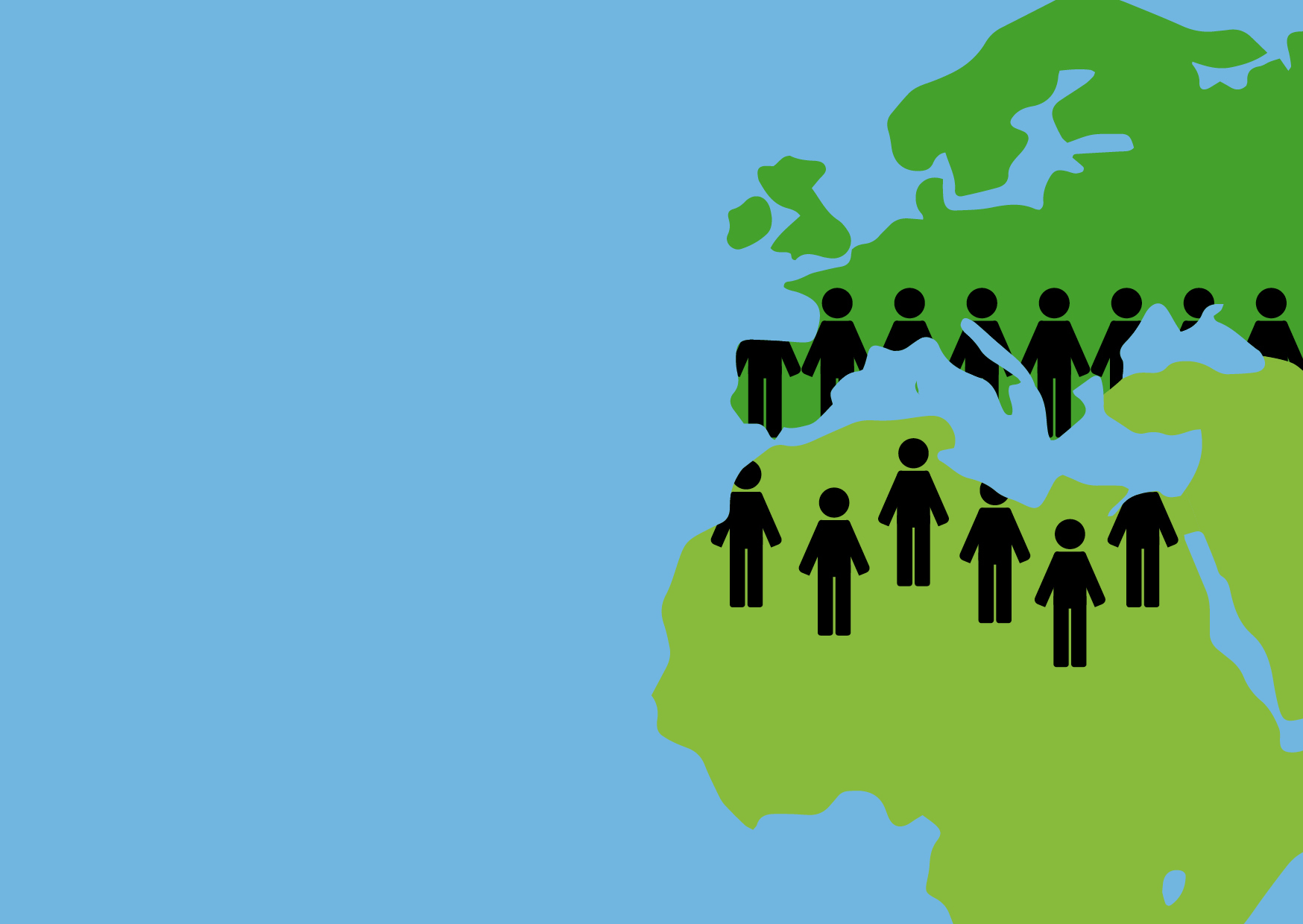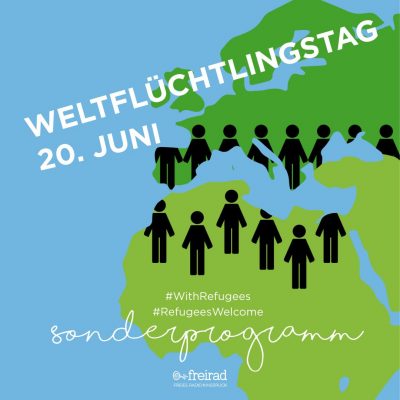106,2 MHz Völs bis Telfs
89,6 MHz Hall bis Schwaz

Am 20. Juni finden weltweit in etwa hundert Ländern Veranstaltungen statt, mit denen die Teilnehmenden ihre Solidarität mit Flüchtlingen zum Ausdruck bringen. Der Weltflüchtlingstag bietet staatlichen und zivilgesellschaftlichen Akteur*innen sowie Einzelpersonen – ob berühmt oder nicht – die Gelegenheit, sich für folgende Ziele einzusetzen: bessere Lebensbedingungen für die Betroffenen und ein bestmögliches Zusammenleben von Vertriebenen und einheimischer Bevölkerung.
Zum Weltflüchtlingstag veröffentlicht UNHCR auch jährlich die globalen Flüchtlingszahlen – in den letzten Jahren haben sie traurige Rekorde erreicht. Gewalt, Verfolgung und Menschenrechtsverletzungen in vielen Regionen der Welt haben zu Höchstständen bei Binnenvertriebenen, Flüchtlingen und Asylsuchenden geführt. Hinter den Zahlen und Fakten stehen viele Millionen einzelne Menschen und ihre Geschichten; Geschichten von Gewalt und Verlust, aber auch von Mut und Hoffnung. Ihre Stimmen sollen am Weltflüchtlingstag ganz besonders im Mittelpunkt stehen.
FREIRAD widmet dem Thema ein Sonderprogramm, um auf auf die Lebensbedingungungen und Anliegen von Flüchtlingen aufmerksam zu machen und ihren Mut zu würdigen.
Dieses Jahr sind im Programm übernommene Sendungen, die das Flüchtlingsthema im Fokus haben, sowie eine Livesendung und Beiträge von FREIRADs Radiomacher*Innen.
8:15 – 9:00
Refugees, the Humanitarian Crisis in Bosnia, the Role of the IOM and the EU, and the Lack of Accountability. An Interview with Gorana Mlinarević
Eine Übernahme von FSK, dem Freien Radio in Hamburg.
Since 2018 an estimated 50.000 refugees and migrants arrived in Bosnia and Herzegovina (BiH). Most of these men, women and children came and come via Greece, trying to transit through Bosnia in order to get into Croatia and thus the EU. However, Croatia refuses to let them into the country.
At the beginning in 2018, the situation was already catastrophic. In the border region in the North-West of Bosnia, around Bihać and Velika Kladuša, thousands of people lived in the fields, in makeshift ‘refugee centers’ and in squats under extremely poor humanitarian conditions. They did not have proper housing, food or medical support.
Today, however, the situation appears to be even worse: the conditions in the camps have not improved, but more people arrived and arrive, and there is no possibility for legal access into Croatia. People who do nevertheless try to cross the border report that the Croatian police and border patrol uses extreme violence, illegally pushing refugees back to BiH. They are thus denied their basic human right to apply for asylum.
On 5 April 2020, re(h)v(v)o(l)lte radio spoke about the situation of the refugees in BiH to feminist activist Gorana Mlinarević.
10:07 – 11:00
„Grenzen töten“ & „Hi Mom, I’m here“
Eine Sendung von Mamal Kianipour, Hameed Abu-Ragheef
14:00 – 15:00
Flucht und Forschung – Lernen aus der Vergangenheit?
Zwei Interviews mit ExpertInnen unterschiedlicher Fachbereiche:
1. Flucht und Migration im historischen Kontext mit Bezug auf die habsburgischen Territorien und Österreichs Rolle als Zufluchtsort für Menschen auf der Flucht.
2. Stellenwert und (historischner) Zusammenhang von Sprache und Flucht & Vertreibung.
Eine Sendung von Carolin Vonbank und René Foidl



